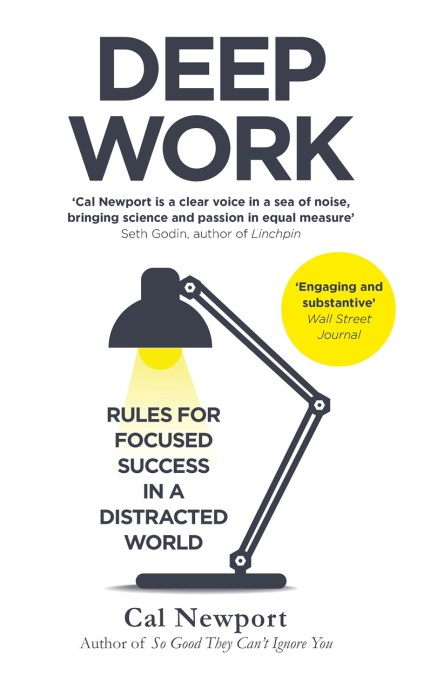Here are the five key findings that sum up the highs and lows of being an entrepreneur.
YOU MIGHT ALSO LIKE
CLEAR ALL
BY TOPIC
BY TEACHER
BY TYPE
FILTER

TOPIC
- Stress (58)
- Work Challenges (54)
- Anxiety (40)
- Stress Management (38)
- Creative Well-Being (37)
- Life Challenges (37)
- Resilience (35)
- Depression (34)
- Honoring Emotion (31)
- Leadership (28)
- Communication Skills (26)
- Self-Care (23)
- Work Relationships (21)
- Neuroscience (20)
- BIPOC Well-Being (19)
- Building Culture (19)
- Well-Being (19)
- Cancer (18)
- Mindfulness (18)
- Goal Setting (17)
- Mind-Body Connection (17)
- Relationship with Money (17)
- Social Responsibility (17)
- Women’s Well-Being (17)
- Work-Life Balance (17)
- Emotional Intelligence (EQ) (16)
- Fear (15)
- Parenting (15)
- Trauma Healing (15)
- Athlete Well-Being (14)
- Black Well-Being (14)
- Courage (14)
- Habit Formation (14)
- Higher Calling (14)
- Problem Solving (14)
- Confidence (13)
- Financial Instability (13)
- Imagination and Creativity (13)
- Relationship Challenges (13)
- Collaboration (12)
- Search for Purpose (12)
- Self-Reflection Practices (12)
- Values (12)
- Brain Health (11)
- Motivation (11)
- Self-Discovery (11)
- Self-Esteem (11)
- Self-Healing (11)
- Soul Mission (11)
- Anger (10)
- Decision Making (10)
- Inner Peace (10)
- Physical Health (10)
- Positive Thinking (10)
- PTSD (10)
- Self-Development (10)
- Suicide (10)
- Burnout (9)
- Child’s Emotional Growth (9)
- Criticism and Rejection (9)
- Grief (9)
- Mental Health Challenges (9)
- Negative Self-Talk (9)
- Passion (9)
- Performance Anxiety (9)
- Productivity (9)
- Self-Limiting Beliefs (9)
- Self-Worth (9)
- Work Ethic (9)
- Adaptability (8)
- Addiction (8)
- Children’s Well-Being (8)
- Compassion (8)
- Failure (8)
- Growth Mindset (8)
- Habits of Mind (8)
- Happiness (8)
- Mindfulness Practices (8)
- Neuroplasticity (8)
- Self-Compassion (8)
- Self-Mastery (8)
- Shame (8)
- Time Management (8)
- Vulnerability (8)
- ADD/ADHD (7)
- Authenticity (7)
- Chronic Anxiety (7)
- Empowerment (7)
- Finding Meaning (7)
- Focus (7)
- Human Potential (7)
- Offering Support to Others (7)
- Presence (7)
- Psychology (7)
- Self-Employment (7)
- Setting Limits and Boundaries (7)
- Asking for Help (6)
- Awareness (6)
- Fellowship and Community (6)
- Female Empowerment (6)
- Gratitude (6)
- Meditation (6)
- Motherhood (6)
- Peak Performance (6)
- Quitting Your Job (6)
- Trauma (6)
- Activism/Service (5)
- Anger Management (5)
- Breathwork (5)
- Community Healing (5)
- Conflict Resolution (5)
- Connection (5)
- Connection with Nature (5)
- Identity (5)
- Imposter Syndrome (5)
- Loneliness (5)
- Memoir (5)
- Neurodiversity (5)
- Optimism (5)
- Relationship with Time (5)
- Self-Pressure (5)
- Speaking Your Truth (5)
- Veteran Well-Being (5)
- Addiction Recovery (4)
- Dysfunctional Childhood (4)
- Eating Disorders (4)
- Family Dynamics (4)
- Inner Strengths (4)
- Intention (4)
- Journaling (4)
- Joy (4)
- Kindness (4)
- Performance Pressure (4)
- Positive Psychology (4)
- Positive Self-Talk (4)
- Self-Acceptance (4)
- Self-Realization (4)
- Social Anxiety (4)
- Sustainability (4)
- Transformation (4)
- Aging (3)
- Autism (3)
- Belonging (3)
- Buddhism (3)
- Child’s ADD/ADHD (3)
- Child’s Anxiety (3)
- Child’s Trauma (3)
- Chronic Pain (3)
- Clinical Depression (3)
- Cognitive Behavioral Therapy (3)
- Curiosity (3)
- Doubt (3)
- Emotional Labor (3)
- Endurance (3)
- Forgiveness (3)
- Gender Challenges (3)
- Generosity (3)
- Global Challenges (3)
- Guilt (3)
- Healthy Eating (3)
- Inspiration (3)
- Integrative Medicine (3)
- Military to Civilian Re-entry (3)
- Mindfulness Meditation (3)
- Neuropsychology (3)
- Race and Gender (3)
- Racial Healing (3)
- Racial Identity (3)
- Racism (3)
- Self-Love (3)
- Self-Reliance (3)
- Social Justice (3)
- Spiritual Awakening (3)
- Suffering (3)
- Toxic Relationships (3)
- Trust (3)
- Visualization (3)
- AAPI Well-Being (2)
- Academic Struggles (2)
- Affirmations (2)
- Alcohol Addiction (2)
- Attachment Theory (2)
- Autoimmune Disease (2)
- Biofeedback (2)
- Body Image (2)
- Body Positivity (2)
- Cannabis/CBD (2)
- Chronic Health Conditions (2)
- Competition (2)
- Consciousness (2)
- Death and Dying (2)
- Despair (2)
- Diet and Nutrition (2)
- Digital Life (2)
- Divorce and Breakup (2)
- Empathy (2)
- Environmental Justice (2)
- Exercise (2)
- Facing Own Death (2)
- Following Bliss (2)
- Forest Bathing (2)
- Holism (2)
- Hope (2)
- Hypnosis (2)
- Intergenerational Trauma (2)
- Letting Go (2)
- LGBTQIA Well-Being (2)
- Mentoring (2)
- OCD (2)
- Othering (2)
- Panic Attacks (2)
- Post-Traumatic Growth (2)
- Prayer (2)
- Regret (2)
- Retirement (2)
- Romantic Relationships (2)
- Self-Actualization (2)
- Self-Control (2)
- Self-Discipline (2)
- Self-Reckoning (2)
- Shadow (2)
- Situational Depression (2)
- Social Media Addiction (2)
- Social Psychology (2)
- Spiritual Growth (2)
- Spiritual Life (2)
- Spiritual Practices (2)
- Storytelling (2)
- Tibetan Buddhism (2)
- Transitions (2)
- Willpower (2)
- Yoga (2)
- Young Adult Well-Being (2)
- Youth Activism (2)
- A Course in Miracles (1)
- Abandonment (1)
- Acceptance (1)
- Accepting Love (1)
- Acupressure (1)
- Animal Communication (1)
- Animal Connection (1)
- Animal Welfare (1)
- Art Therapy (1)
- Body Scan Meditation (1)
- Building Character (1)
- Bullying (1)
- Caregiver Well-Being (1)
- Child’s Autism (1)
- Child’s Challenging Behavior (1)
- Codependency (1)
- Collective Trauma (1)
- Conscience (1)
- Cross-Cultural Dynamics (1)
- Dark Night of the Soul (1)
- Death or Loss of a Loved One (1)
- Death or Loss of a Parent (1)
- Disabled Well-Being (1)
- Disconnection (1)
- Domestic Abuse (1)
- Energy Healing (1)
- Faith (1)
- Friendship (1)
- Gender Discrimination (1)
- Genetics (1)
- Goddess (1)
- Guided Meditation (1)
- Healing Approaches (1)
- Heartmath (1)
- Hero’s Journey (1)
- Highly Sensitive People (1)
- Humility (1)
- Inflammation (1)
- Inner Child (1)
- Inner Life (1)
- Intimacy (1)
- Intuition (1)
- Jealousy/Envy (1)
- Job Loss (1)
- Latinx Well-Being (1)
- Learning Styles (1)
- LGBTQIA Children (1)
- Life-Altering Injury (1)
- Living as an Empath (1)
- Living with Illness (1)
- Longevity (1)
- Loss of an Animal Companion (1)
- Love (1)
- Lovingkindness (1)
- Manifestation (1)
- Masculine/Feminine Dynamics (1)
- Memory (1)
- Moral Philosophy (1)
- Narcissism (1)
- Nutritional Medicine (1)
- Personality Disorders (1)
- Poverty/Economic Inequality (1)
- Pregnancy and Childbirth (1)
- Psychoanalysis (1)
- Psychology and Spirituality (1)
- Racial Discrimination (1)
- Raising Daughters (1)
- Rest (1)
- Science and Spirituality (1)
- Self-Expression (1)
- Sex (1)
- Sexuality (1)
- Sleep (1)
- Sleep Disorders (1)
- Somatic Experiencing (1)
- Somatic Practices (1)
- Spiritual Quest (1)
- Spirituality and Health (1)
- Stoicism (1)
- Taoism (1)
- The Divine (1)
- Unfulfilled Career (1)
- Vitamin Supplementation (1)
- Weight Concerns (1)
- Women’s Rights (1)
FILTER

TEACHER
- Kelly McGonigal (3)
- Martin Luther King Jr. (3)
- Rick Hanson (3)
- Sanjay Gupta (3)
- Andrew Solomon (2)
- Brené Brown (2)
- Chinedu Echeruo (2)
- Craig Hamilton (2)
- Daniel Amen (2)
- Daniel Goleman (2)
- Daniel J. Siegel (2)
- David Whyte (2)
- John Sarno (2)
- Karla McLaren (2)
- Robert Sapolsky (2)
- Terri Cole (2)
- The Dalai Lama (2)
- Alain de Botton (1)
- Alison Green (1)
- Amishi Jha (1)
- Andrew Weil (1)
- Angela Duckworth (1)
- Anna Sale (1)
- Bart Houlahan (1)
- Bernie S. Siegel (1)
- Bessel van der Kolk (1)
- Biet Simkin (1)
- Blaise Aguirre (1)
- Brian Weiss (1)
- C. S. Lewis (1)
- Cal Newport (1)
- Chalene Johnson (1)
- Chip Conley (1)
- Connie Zweig (1)
- David Perlmutter (1)
- Deepak Chopra (1)
- Elaine Aron (1)
- Elizabeth Lesser (1)
- Elizabeth Stanley (1)
- Forrest Hanson (1)
- Gary Zukav (1)
- Gay Hendricks (1)
- Gordon Neufeld (1)
- Guru Jagat (1)
- Harriet Lerner (1)
- Hyla Cass (1)
- Iskra Lawrence (1)
- Jack Canfield (1)
- Jacqueline Carter (1)
- James Doty (1)
- Jan Willis (1)
- Jana Long (1)
- Jay Shetty (1)
- Jenny Kassan (1)
- Jetsunma Tenzin Palmo (1)
- John Bradshaw (1)
- Joseph Goldstein (1)
- Julia Cameron (1)
- Karen May (1)
- Kenneth Pelletier (1)
- Kristin Neff (1)
- Leah Guy (1)
- Lewis Howes (1)
- Linda Graham (1)
- Lindo Bacon (1)
- Lisa Wimberger (1)
- Lise Van Susteren (1)
- Lodro Rinzler (1)
- Lori Gottlieb (1)
- Louise Hay (1)
- Marianne Williamson (1)
- Mark Victor Hansen (1)
- Matt Kahn (1)
- Maya Angelou (1)
- Melissa Urban (1)
- Michael Bernard Beckwith (1)
- Mihály Csíkszentmihályi (1)
- Nicole LePera (1)
- Noah Elkrief (1)
- Norman Fischer (1)
- Oprah Winfrey (1)
- Panache Desai (1)
- Paramahansa Yogananda (1)
- Pema Chödrön (1)
- Phillip Moffitt (1)
- Poppy Jamie (1)
- Ralph De La Rosa (1)
- Rich Fernandez (1)
- Ruby Wax (1)
- Sadhguru (1)
- Sam Harris (1)
- SARK (1)
- Shaman Durek (1)
- Sharon Salzberg (1)
- Simon Sinek (1)
- Stephan Bodian (1)
- Stephanie Y. Evans (1)
- Steven Kotler (1)
- Tony Gaskins Jr. (1)
- William Bloom (1)
- Wim Hof (1)










